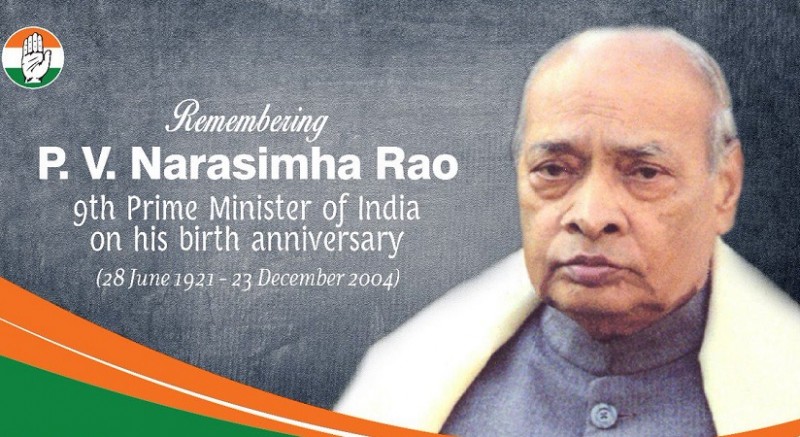
On June 28, 1921, a remarkable leader and statesman, P.V. Narasimha Rao, was born in the town of Laknepalli, in the erstwhile princely state of Hyderabad, British India. As we commemorate his birth anniversary, it is important to reflect on the life and legacy of this influential figure who left an indelible mark on Indian politics and governance.
Pamulaparti Venkata Narasimha Rao, popularly known as P.V. Narasimha Rao, was a man of exceptional intellect and political acumen. He came from humble beginnings, born into a modest agrarian family in the village of Vangara, in the present-day state of Telangana. Despite the challenges he faced, Rao's determination and thirst for knowledge propelled him to great heights.
Rao's academic journey was a testament to his brilliance. He pursued his education at Osmania University, Hyderabad, where he studied a range of subjects including law, economics, and politics. His deep understanding of these fields, coupled with his sharp analytical skills, laid a solid foundation for his future endeavors in public service.
After completing his education, Narasimha Rao embarked on a political career that spanned several decades. He became an active member of the Indian National Congress and rose through the ranks, gradually establishing himself as a formidable leader. His ability to connect with people from all walks of life and his inclusive approach to politics earned him respect and admiration across the political spectrum.
Narasimha Rao's defining moment came in 1991 when he was appointed as the ninth Prime Minister of India. He assumed office during a time of profound economic and political challenges, with the country grappling with a severe balance of payment crisis. Rao, known for his pragmatism and reformist mindset, introduced a series of groundbreaking economic reforms that transformed India's economic landscape.
Under Rao's leadership, India adopted a path of liberalization and globalization, dismantling the License Raj and opening up the economy to foreign investments. These reforms unleashed the entrepreneurial spirit of the nation and paved the way for rapid economic growth, attracting foreign direct investment and modernizing various sectors of the economy.
Rao's tenure also witnessed significant strides in foreign policy. He initiated diplomatic efforts to strengthen relations with neighboring countries, especially in Southeast Asia. His "Look East" policy aimed at expanding India's engagement with the ASEAN countries and forging closer ties with regional powers.
Despite his numerous achievements, Rao's tenure was not without challenges. His government faced criticism and opposition from various quarters, but he remained steadfast in his commitment to nation-building and ensuring the welfare of the people. His leadership and ability to navigate complex political landscapes earned him the reputation of a reformer and a visionary.
After completing his term as Prime Minister in 1996, Narasimha Rao continued to contribute to public life through his writings and speeches. He penned several books on politics, economics, and governance, showcasing his deep insights and intellectual prowess. His ideas and vision continue to inspire generations of leaders and policymakers.
On this day, as we remember and celebrate the birth of P.V. Narasimha Rao, let us recognize his immense contributions to the nation. His legacy serves as a reminder of the transformative power of leadership and the ability of an individual to shape the destiny of a nation.